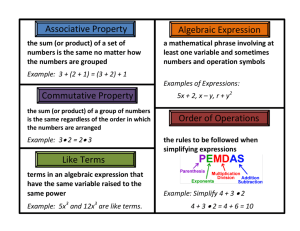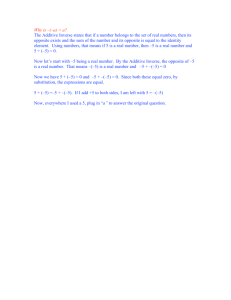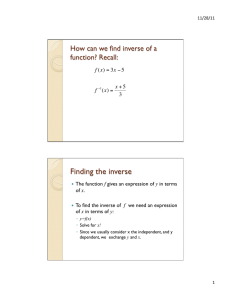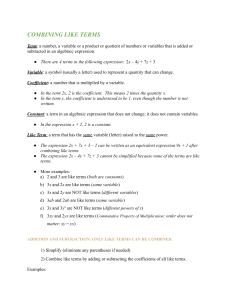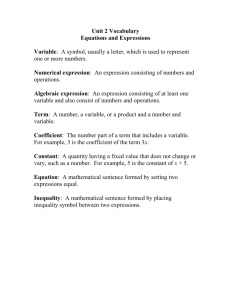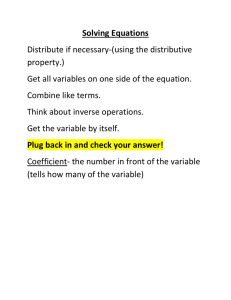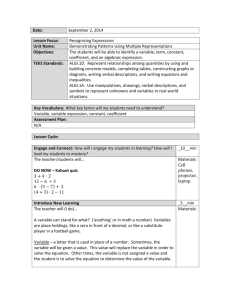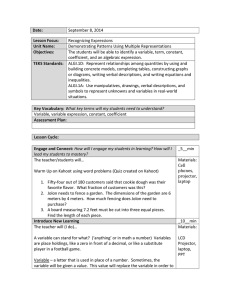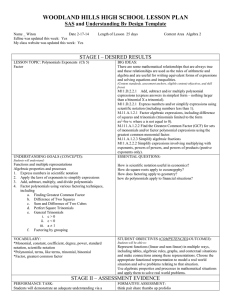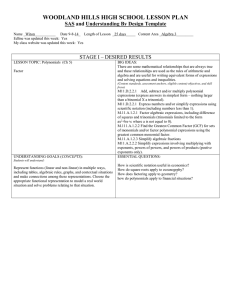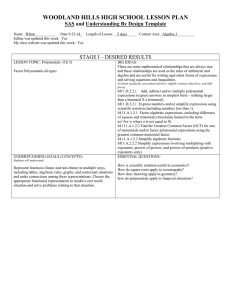Final Review: Other Techniques
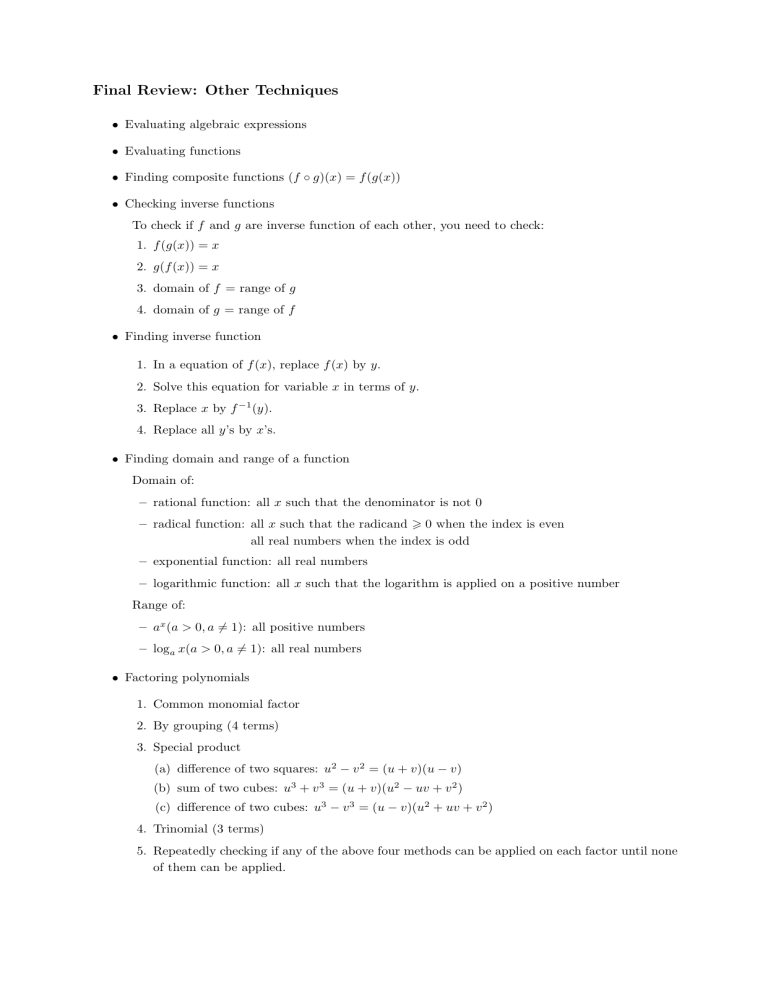
Final Review: Other Techniques
• Evaluating algebraic expressions
• Evaluating functions
• Finding composite functions ( f ◦ g )( x ) = f ( g ( x ))
• Checking inverse functions
To check if f and g are inverse function of each other, you need to check:
1.
f ( g ( x )) = x
2.
g ( f ( x )) = x
3. domain of f = range of g
4. domain of g = range of f
• Finding inverse function
1. In a equation of f ( x ), replace f ( x ) by y .
2. Solve this equation for variable x in terms of y .
3. Replace x by f − 1 ( y ).
4. Replace all y ’s by x ’s.
• Finding domain and range of a function
Domain of:
– rational function: all x such that the denominator is not 0
– radical function: all x such that the radicand > 0 when the index is even all real numbers when the index is odd
– exponential function: all real numbers
– logarithmic function: all x such that the logarithm is applied on a positive number
Range of:
– a x ( a > 0 , a = 1): all positive numbers
– log a x ( a > 0 , a = 1): all real numbers
• Factoring polynomials
1. Common monomial factor
2. By grouping (4 terms)
3. Special product
(a) difference of two squares: u 2 − v 2 = ( u + v )( u − v )
(b) sum of two cubes: u 3 + v 3 = ( u + v )( u 2 − uv + v 2 )
(c) difference of two cubes: u 3 − v 3 = ( u − v )( u 2 + uv + v 2 )
4. Trinomial (3 terms)
5. Repeatedly checking if any of the above four methods can be applied on each factor until none of them can be applied.
• Long division and synthetic division of polynomials
Compare with the long division between integers.
Synthetic division only works for the divisor of the shape x − k .
• Completing the square
Only works for quadratic expression with leading coefficient 1.
So factor out the leading coefficient first.
• Constructing algebraic expressions from verbal description (see § 1.5 for keywords)
• Solving word problems
1. Establish a word equation from the problem
2. Assume one unknown number to be x
3. Develop expressions for other unknown numbers in x from the problem
4. Solve the equation for x .
5. Check if your solution makes sense in the problem (such as a negative distance)
